Diwali, India's Traditional Festival
Diwali, also known as the Festival of Lights, is one of the most celebrated festivals in India. It symbolizes the triumph of light over darkness and good over evil. During Diwali, homes are adorned with colorful rangoli designs, oil lamps (diyas), and fairy lights. Families come together to exchange gifts, enjoy festive feasts, and burst firecrackers. The festival also holds religious significance, commemorating the return of Lord Rama to Ayodhya after 14 years of exile. Diwali fosters a spirit of unity, joy, and prosperity.
While the essence of Diwali remains unchanged, many now emphasize eco-friendly practices by using biodegradable decorations, avoiding excessive fireworks, and promoting sustainable gifting.
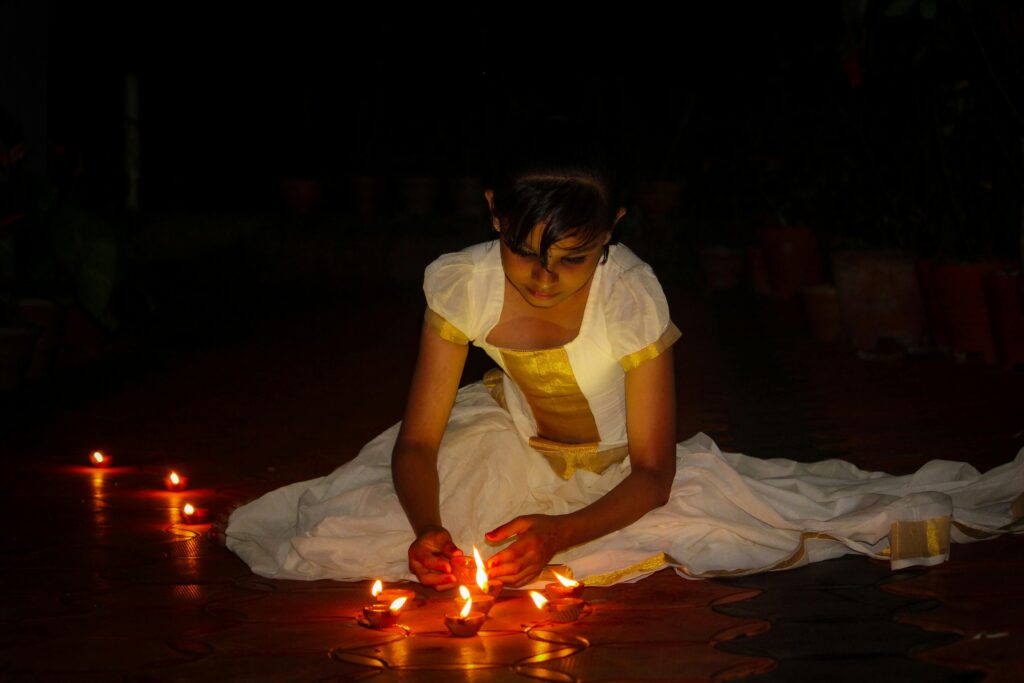
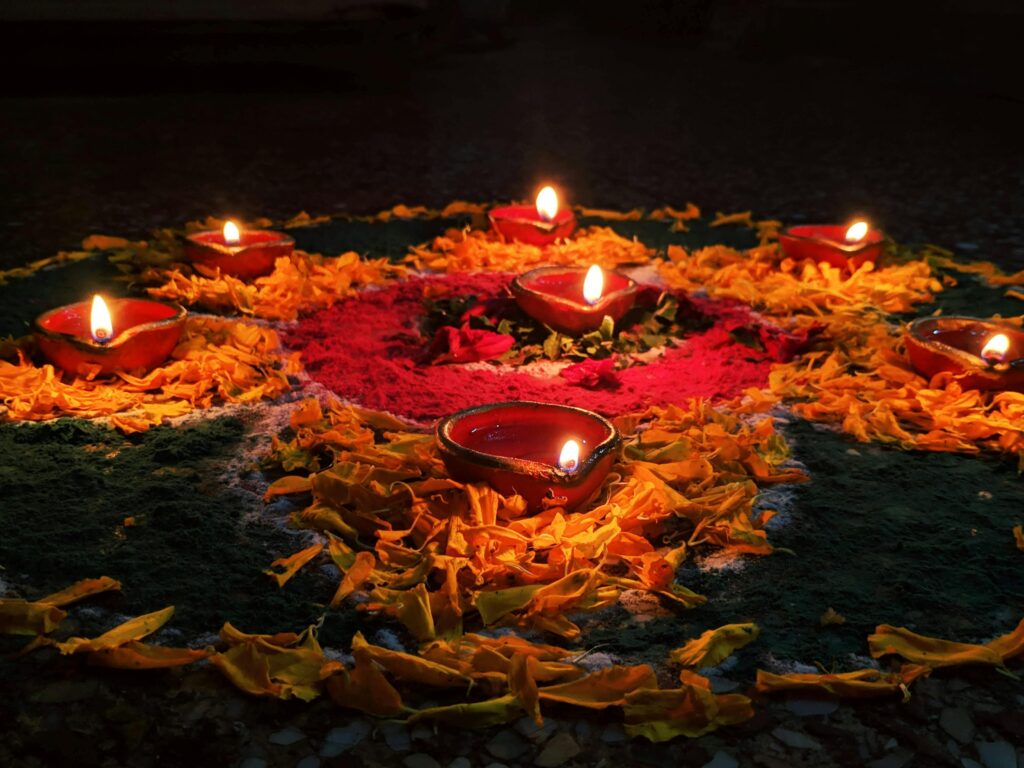
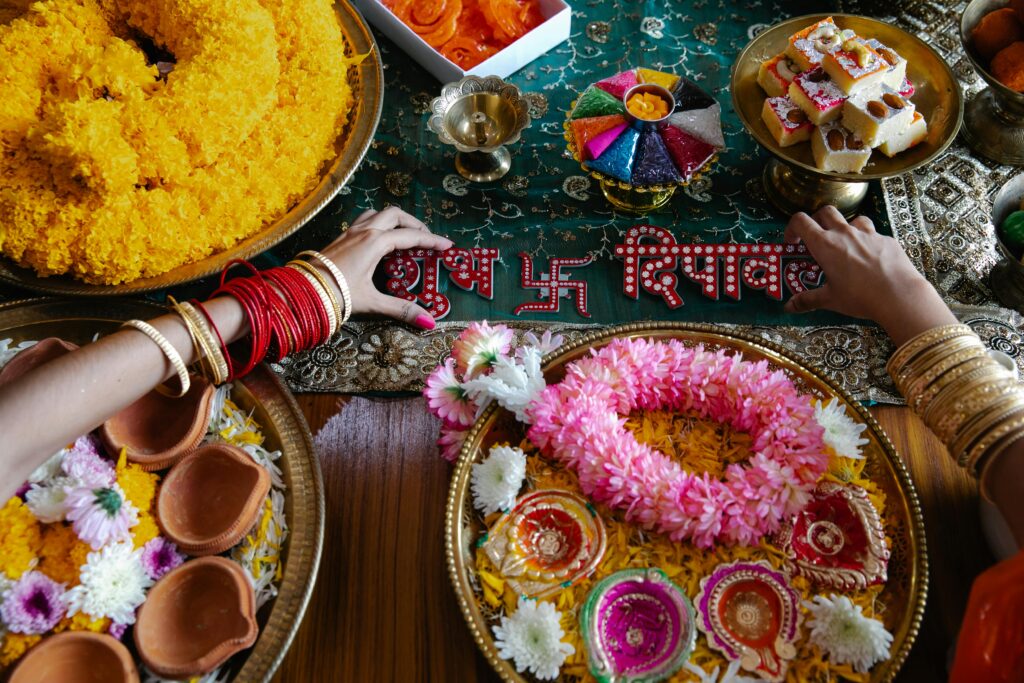
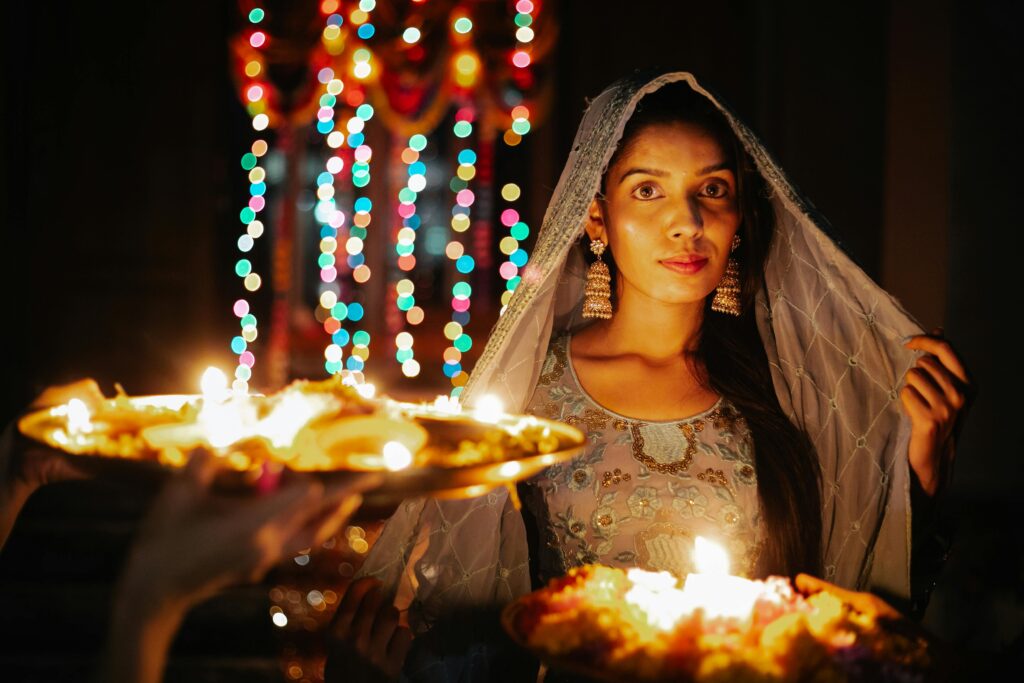
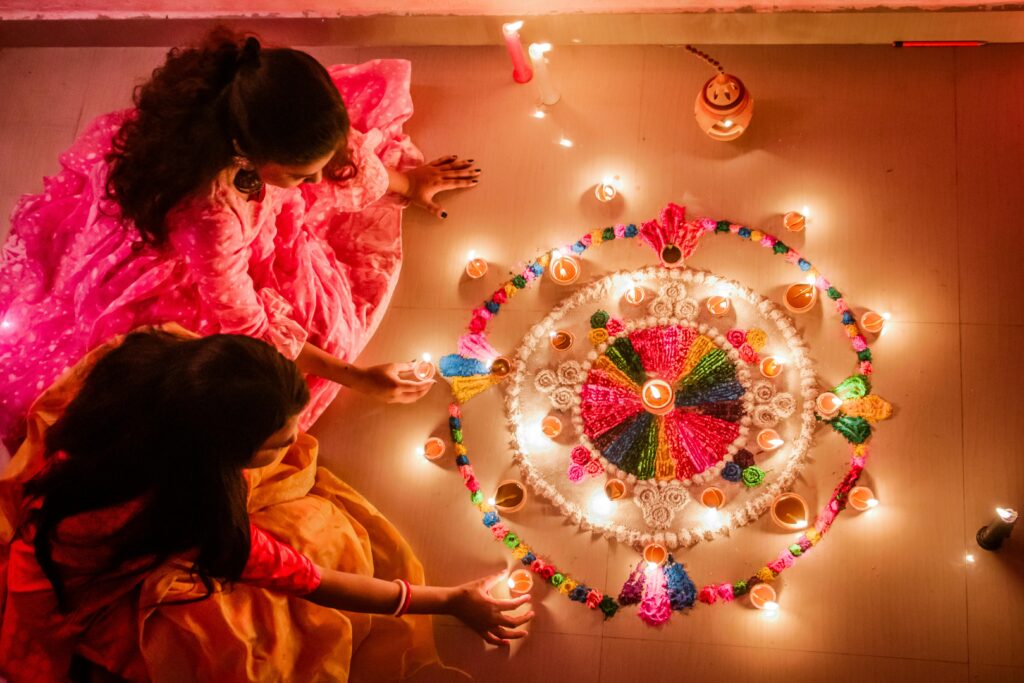

Deepavali, is one of the most celebrated festivals in India, revered for its spiritual significance and cultural vibrancy. This “Festival of Lights” typically spans five days and falls in the Hindu month of Kartika (October-November). Deepavali holds profound meaning across various Indian communities, symbolizing the triumph of light over darkness, good over evil, and knowledge over ignorance. The festival’s origins in mythology and history trace back to ancient scriptures, including the Ramayana, which marks Lord Rama’s victorious return to Ayodhya after defeating Ravana and his 14-year exile.
The preparations for Deepavali begin weeks in advance, as homes are thoroughly cleaned, renovated, and decorated to welcome Lakshmi, the goddess of wealth and prosperity. People adorn their spaces with colourful rangoli designs crafted with flowers, powdered dyes, or rice flour, symbolizing auspiciousness and creativity. The lighting of clay lamps (diyas) and strings of electric lights is a central tradition, illuminating homes and streets with a warm glow that dispels negativity and spreads positivity.
Each of the five days of Deepavali carries unique rituals and significance. The first day, Dhanteras, is dedicated to wealth and health, marked by the purchase of gold, silver, and utensils. The second day, Naraka Chaturdashi or Chhoti Deepavali, commemorates Lord Krishna’s victory over the demon Narakasura, emphasizing the cleansing of negativity and preparation for the main celebrations. The third day, the main Deepavali festival, is a day of worship and festivity. Families gather to perform Lakshmi Puja, seeking blessings for prosperity, health, and happiness, followed by feasts, exchange of gifts, and the bursting of firecrackers.
The fourth day, Govardhan Puja or Annakut, varies in significance across regions, from worshipping Lord Krishna to celebrating the bond between spouses. The final day, Bhai Dooj, is a celebration of the sibling bond, where brothers and sisters exchange gifts and good wishes.
Deepavali is not only a religious festival but also a social and cultural phenomenon that brings people together, transcending caste, creed, and geography. Delicious traditional sweets like laddoos, barfis, and gulab jamun, along with savoury snacks, form an integral part of the celebrations, emphasizing the spirit of sharing and community.
Firecrackers, a hallmark of Deepavali, symbolize the joy and grandeur of the occasion. However, in recent years, there has been a growing awareness of eco-friendly celebrations to reduce pollution and protect the environment. Deepavali is also an occasion for charity, as many people donate food, clothes, and money to the less fortunate, spreading the festival’s message of kindness and inclusion.
Ultimately, Diwali is a time of renewal and reflection, inspiring individuals to embrace light, wisdom, and goodness in their lives while fostering unity, gratitude, and joy among families and communities. It is not just a festival but a timeless reminder of the enduring power of light to overcome even the deepest darkness.
Diwali truly is a celebration of light, love, and life, uniting people in its glow of happiness and prosperity.It serves as a reminder to overcome life’s challenges with resilience and positivity.
